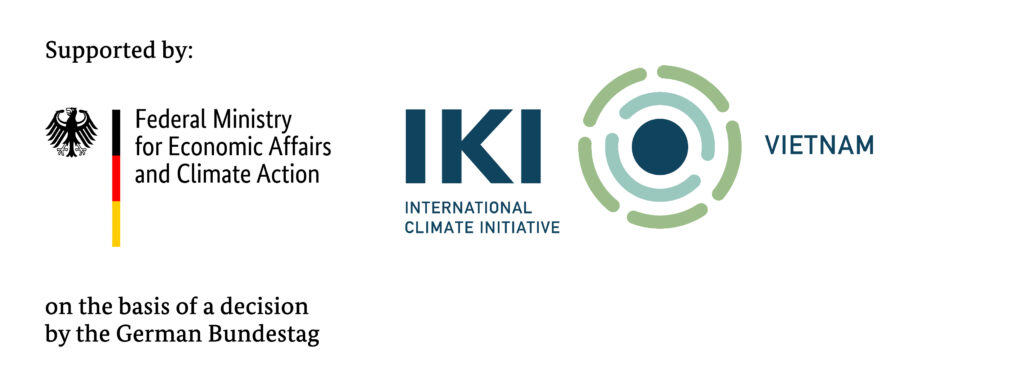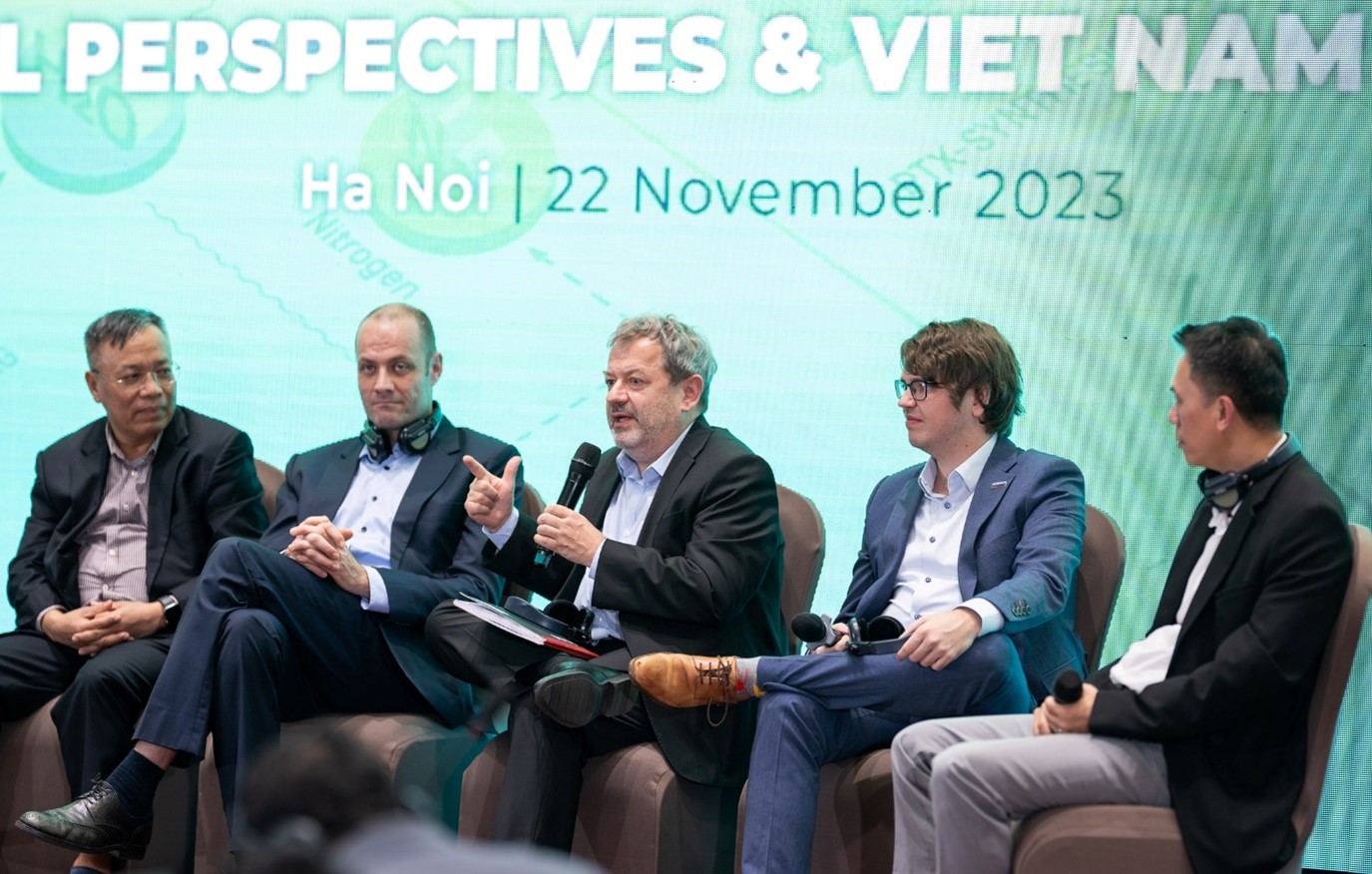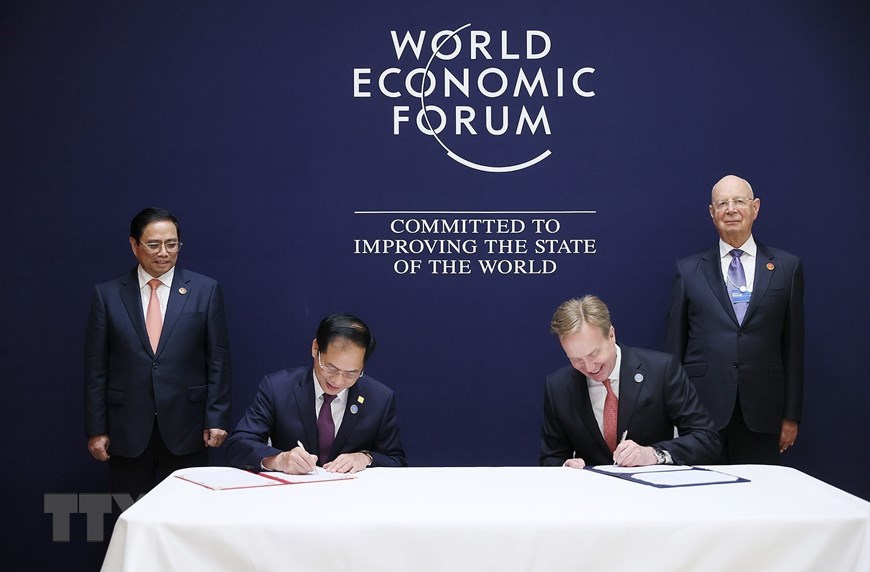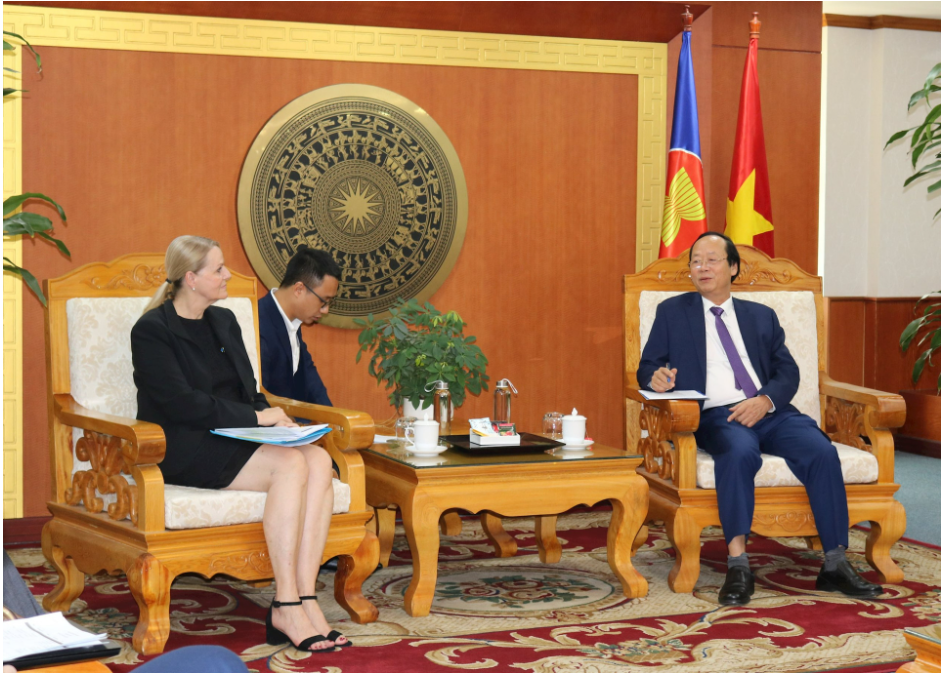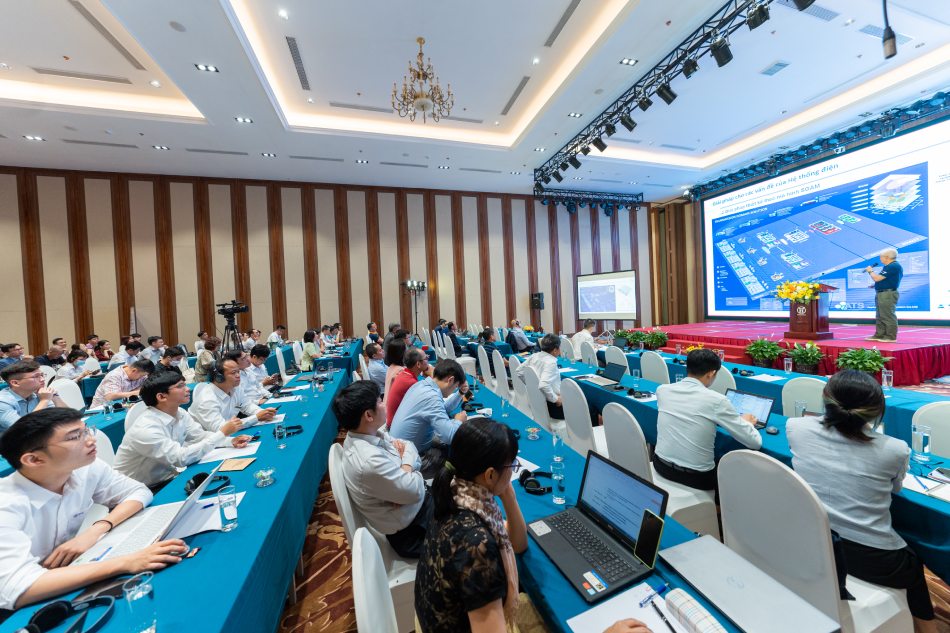As a developing country severely affected by climate change, Vietnam is actively working towards achieving the goal of net zero emissions by 2050, despite resource constraints. Vietnam has outlined its commitments related to COP26 in various policies on climate change, green growth, and a just energy transition.
The updated Nationally Determined Contribution (NDC) for 2022 sets the greenhouse gas emissions reduction targets for 2030. According to the updated NDC, the energy sector is projected to account for 73.1% of total net emissions in 2030 under the Business-As-Usual (BAU) scenario. If the highest reduction target is achieved with international support, the share of energy emissions in total net emissions will be 86.1%. Therefore, planned emissions reductions in the energy sector are of great significance. The technical report for the NDC (2022) also highlights that emissions from the power sector play a major role in the energy sector, while emissions in the energy sector also arise from coal mining, exploration and refining of fossil fuels, and energy-consuming sectors such as transport, industrial production, construction and operation of buildings, agriculture, and aquaculture.
The Political Declaration establishing a Just Energy Transition Partnership in Vietnam (JETP), announced on 14 December 2022 between Vietnam and the International Partners Group (IPG), is a crucial step towards achieving the country’s climate targets. The partnership will mobilise an initial US$15.8 billion of public and private finance over the next three to five years to facilitate national emissions reductions in the energy sector and create new sustainable economic opportunities to support the transition to a net zero future. These JETP targets align with the NDC and make a significant contribution to the country’s long-term objectives under the Paris Agreement.
Specifically, through the JETP, international partners will support Vietnam in accelerating the decarbonisation of the electricity system from the current net-zero planning peak of 240 MtCO2e by 2035 towards reaching a peak of no more than 170 MtCO2e emissions from electricity generation by 2030. Additionally, partners will collaborate with Vietnam’s government and investors to reduce the pipeline for coal-fired generation and provide a credible and ambitious pathway for phasing out unabated coal-fired power generation after the specified dates. This will be achieved through meaningful support from IPG partners in terms of finance and technologies. The financing mechanism of JETP will involve a combination of grants, loans, equity, and guarantees on more favorable terms than capital markets. Although the finance commitments in JETP represent a relative small share of the total requirements estimated in the NDC, they should be seen as an initial tranche of financing to accelerate Vietnam’s progress towards achieving the NDC’s conditional targets. Moreover, the focus of public finance commitments in JETP should be on catalyzing and leveraging private finance, which is more readily available and can help bridge the financing gap.

JETP implementation
On July 14th, the Deputy Prime Minister signed Decision 845/QD-TTg to promulgate the establishment of a secretariat for implementing the JETP Declaration. Shortly thereafter, on August 31, 2023, the Prime Minister approved Decision No. 1009/QD-TTg, which outlines the Scheme to implement Vietnam’s JETP. On December 1, 2023, at the COP28 in Dubai, UAE, Prime Minister Phạm Minh Chính officially launched the Resource Mobilisation Plan (RMP). This plan provides a roadmap to achieve the goals of a just energy transition, including principles and criteria for project prioritization and selection, as well as mobilization of necessary financial resources.
The RMP identifies eight pioritiy tasks, which are: (i) Improvement of the regulatory framework for energy transition; (ii) Acceleration of the transition from coal power to clean energy; (iii) Development of the industrial and service ecosystem for renewable energy; (iv) Energy saving and energy efficiency; (v) Upgrading of power transmission and energy storage systems; (vi) Green energy transition and reduction of greenhouse gas emissions in the transport sector; (vii) Innovation, development, and technology transfer; and (viii) Ensuring a just energy transition. The launch of the RMP at COP28 marks a significant milestone in paving the way for a just energy transition that leaves no one behind.
The second JETP Secretariat meeting is scheduled to be organized in early 2024. The meeting will determine policy actions for 2024, discuss IPG supporting activities, and adopt a detailed work plan for JETP implementation, which includes consideration of the “Just” aspect and the development of a Just Transition Framework.
